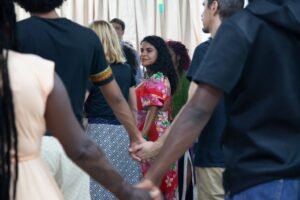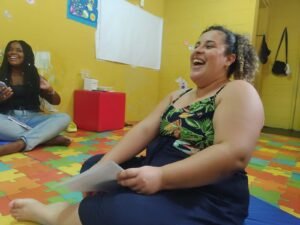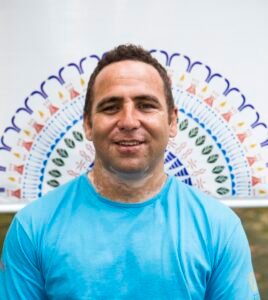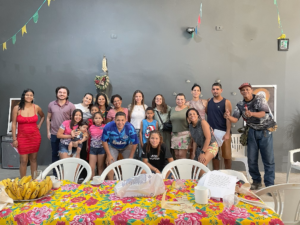
Katró, GSA 2022: Transforming realities: the contribution of hip hop to a just Angola
This article was voluntarily translated by Israel Caravallo, a member of the Elos Translation Community. I’ve always dreamed of a just Angola, where everyone has

This article was voluntarily translated by Israel Caravallo, a member of the Elos Translation Community. I’ve always dreamed of a just Angola, where everyone has

Dimas Reis is like river water, in an agitated movement towards an ancestral future that he constructs with his chest, heart, and hands. He exists

This article was voluntarily translated by Israel Caravallo, a member of the Elos Translation Community. Creativity and efforts, alone, tend to be insufficient for the

This article was voluntarily translated by Izadora Silva, a member of the Elos Translation Community. “For me, knowledge is only valid if it is meeting

This article was voluntarily translated by Antonio Oliveira, a member of the Elos Translation Community. Leia em português aqui. GSA 2014, Priscilla Pereira is an

It is hard to recognize a miracle when you are in it, that’s where Felipe Ferreira started talking. A resident of Aldeia, in Guarujá, he

Leia em português aqui. Fernanda Gomes, GSA 2017, has a hypothesis for change: investing in the administrative and accounting structure of social and cultural initiatives

This article was translated by Antonio Oliveira, a volunteer participant in the Translation Community at Instituto Elos. Read it in Portuguese here. Read it in

This article was voluntarily translated by Eloísa Ferré, a member of the Elos Translation Community. Read it in Portuguese here. Read it in Spanish here.

Leia este artigo em português aqui. Lea este artículo en español aquí. This article was translated by Antonio Oliveira, a volunteer participant in the Translation
We connect people, communities, governments and companies to learn together and work towards the best world possible.
ELOS INSTITUTE
Rua Marechal Hermes 37
Boqueirão, Santos – SP
BRAZIL
+55 13 3326-4478
elos@institutoelos.org
Your contribution takes social education to young leaders and communities worldwide.